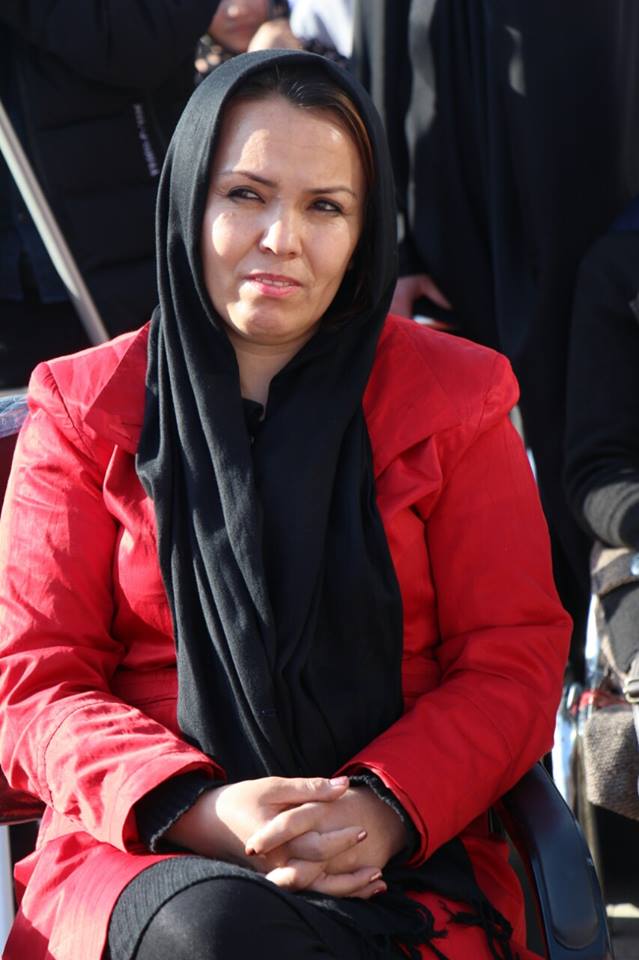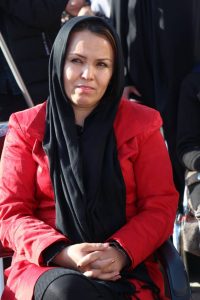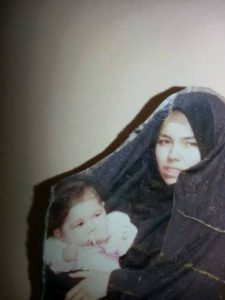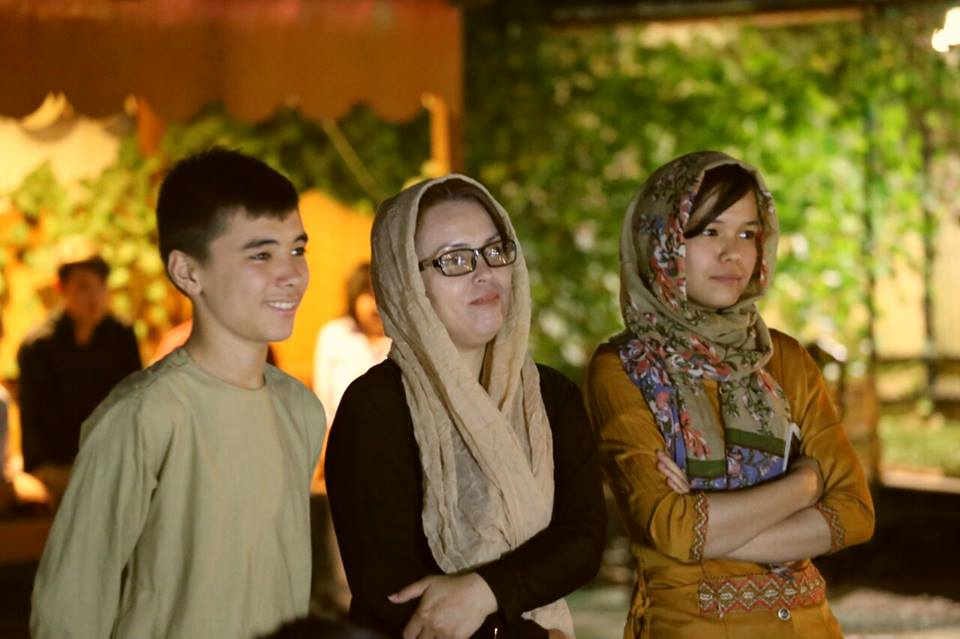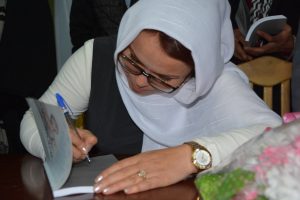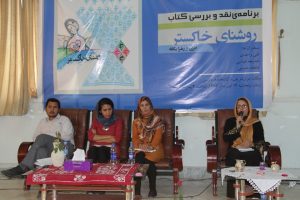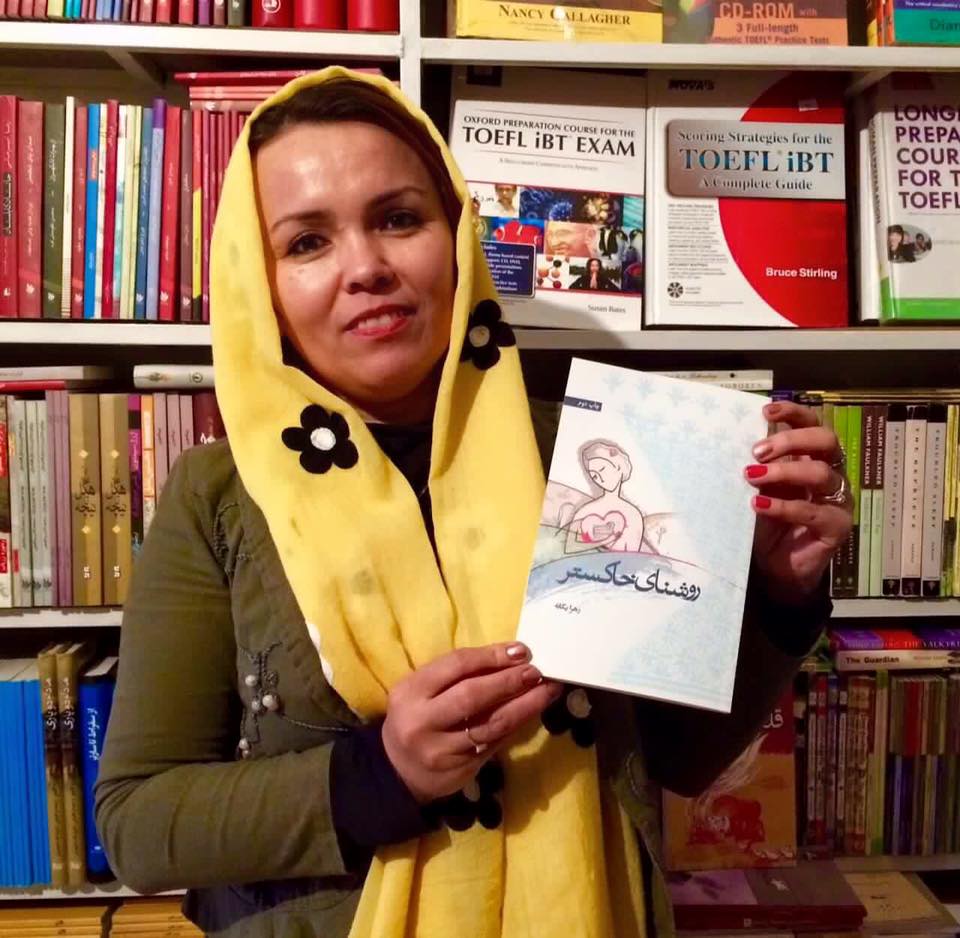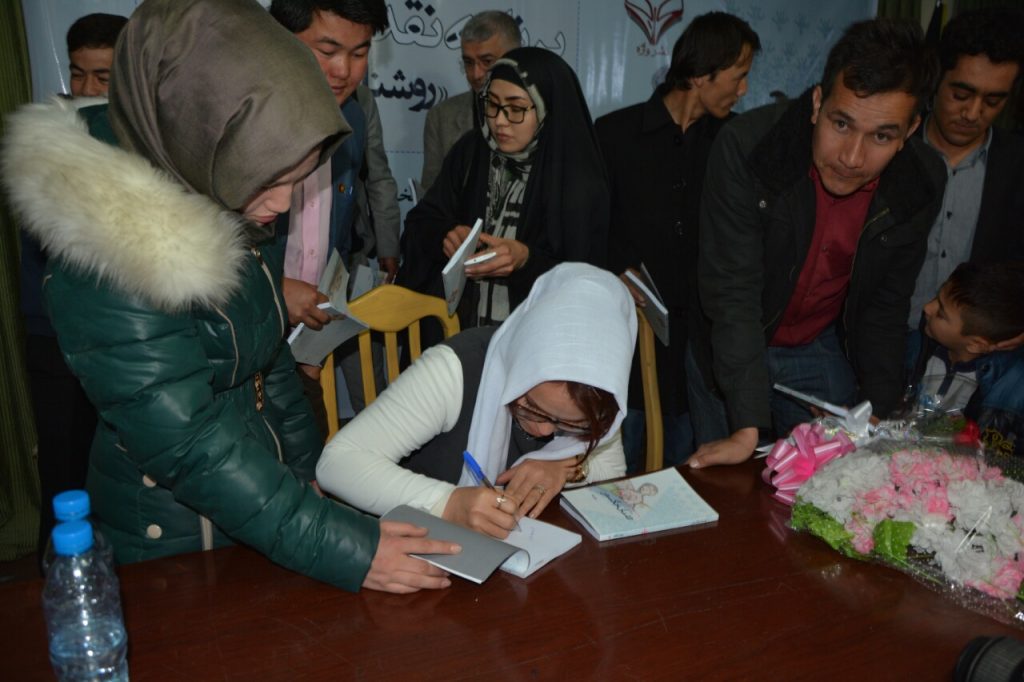In a quiet area of Kabul’s third district, we walked into a dusty and polluted sub-street looking for the address we already had been given to find. Together with my friend, we checked around the doors, so to find the home number. Eventually, the given number matched with the number written on the wooden door of a very old mud-walled house. “Oh she lives here!” my friend whispered to himself.
I knocked the door and waited for a few moments. A young sad-looking woman opened the door; smiled and complimented us to her home. A small old home with two rooms, one is used for living and another for work and study. The living room was well-decorated with inspiring quotes and poems scripted with Nastalique calligraphy. The study room was filled with books, magazines, leaflets, and newspapers scattered all around the room.
We chose to sit in the middle of the room to start our interview. She looked around to the books and magazines while smiling and turned her face to us. “I have no home of my own, so I have to change my home every few years or every year. It is why; I can’t set shelves for my books. Moreover, when I am free, I read them or when my friends come, they turn them back,” she said.
When we asked her about her life story, with a deep sigh, she started from Herat province, where she was born and when she was only six months old, her family took her to Iran. She said:” The bitter experiences of living in Iran are still present with me.” However, despite the government restriction and much prevailed social hostility against Afghan refugees, she managed to study there up to secondary school. She was 13 years old when she was forced to marry an addicted man who was much older than her and one year after she became a mom for a disabled child which passed away a few years later.
“In 2004, we returned back from Iran and settled back in Herat. My husband was addicted and I had to work and find livings for my children and provide money, so that my husband could buy opium. One night I couldn’t provide the money he asked for, he was furious; later when I woke up, I found myself with my children in the middle of the flaming fire in a locked room. We were fortunate that rising smokes attracted the attention of our neighbors. They rescued us from certain death,” she said. “This incident taught me a lesson that changed my whole life. I took my divorce, which is a radical decision in Afghanistan; however after a long battle I won.”
In Kabul, her cooking skills helped her to find a job; simultaneously she finished her school, enrolled in college and supported her children. Along with her study, she started working in the research field as an assistant and traveled to major provinces and talked with thousands of men and women from different ethnicities, communities, and religious beliefs. She says these experiences dramatically changed and broadened her view towards women issues in Afghanistan and let her become a women-rights activist.
She is now working as Head of Women Section with Open Asia and also leads her own volunteer-based NGO, the so-called Rainbow Group which is working on environmental issues. In coordination with Open Asia Publishing, she also distributes free books to motivate reading and awareness among youths. Last year she published her first book “Lighting Ash” which aroused large discussion and attention on women’s position in Afghan Society. The second edition published few months after the first edition disappeared from bookstores and the third edition is about to be published in London.
“Lighting Ash” is describing the position of women in Afghan society from a very female perspective. In this book, as a woman named Zahra explicitly narrates her experiences from childhood to adulthood, from inside the family where she lives with to the society where she works and interacts with. In her book, she unveils different layers of discrimination, violence, and prejudices against women in Afghan society; however, she also explains that violence in Afghanistan is a very complex and multi-dimension phenomena. That’s why this book “Light Ash” is tremendously welcomed and appreciated.
“From a narrow aspect, Lighting Ash is only my story, but if you can see the context, it is the story of every woman living in Afghanistan. Despite the far-conservative society of Afghanistan, in this book, I wrote about taboos in women’s lives very frankly and explicitly. It is why the Lighting Ash found the unexpected amount of readers. Years ago when I started writing the book, I never thought about the positive feedback, encouragement, and tribute I received for. I received several calls, emails, and messages that my readers describe their feelings after reading the books. Several people said they have cried while reading the book. A woman said my husband’s behavior dramatically changed after he read the book. All these bring me more courage and also responsibilities and push me further to keep going the way I started,” She said.
However life is still not very easy for Zahra. She is a single mother and has to support her children in each aspect. “But nothing can stop me from following my dreams. I think we are not going to live two or three times and there will not come a proper and right time for us to follow our wishes. We have to fight for what we live and for what we are born for,” she said.













